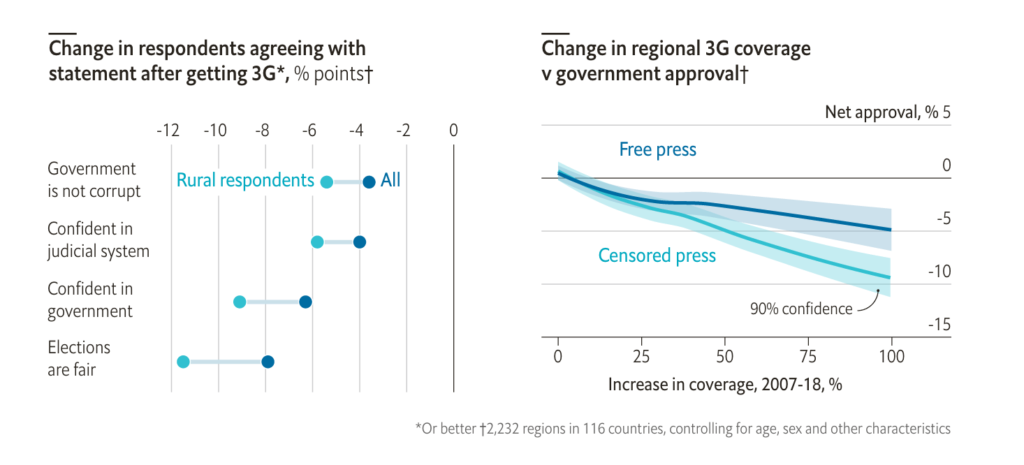Remember trains?
Once upon a time, people used to go places on trains. Now that I come to think of it, people used to go places even without trains.
Quote of the Day
”The bowler’s Holding, the batsman’s Willey”.
- Brian Johnson, BBC Cricket commentator, during a Test Match between England and the West Indies, 1976
He actually said this, live on radio. If ever you needed an illustration of the importance of a comma, then this is it!
Musical replacement for the morning’s radio news
Glenn Gould – Beethoven, Concerto No. 5 in E-flat major op.73 “Emperor”
It’s 18 minutes long, but worth it. Leave it playing while you make breakfast.
Dave Winer: how to break up tech companies
When they contemplate breaking up a tech company, this is how you should do it. Find the component of the company that really is open tech. Something that was open before they came along, that they foreclosed on, and used their monopoly to put everyone else out of business.
That’s where you draw the line of separation. The core should be spun off into a new company that’s well funded, with a charter to commercialize the tech while maintaining zero lock-in. Totally replaceable. Defined APIs that don’t break.
If the company is viable with these constraints, great. If not, they have enough money to plan their own demise. The key thing is they cannot use their dominance to launch new products. Just the open tech.
You would find people willing to staff such a company, there are lots of idealistic developers, still, who believe in the open internet.
In Microsoft’s case, in the 90s this would have meant spinning out the browser.
Today with Facebook it would mean spinning out the open graph.
With Google, it would have to be at least the core search engine. If Alphabet wanted to run ads on search, they’d have to get in line and compete with others who did. This is the price they pay for trying to use their dominance in search to control everything.
Google would also have to spin out Chrome, same way Microsoft would have spun out MSIE in the 90s.
That’s the basic idea. Look for the old open tech buried in the company, that is the source of their monopolistic control, and extract it. Hopefully it’s very painful, to keep successors from tying to do it in the future.
There’s a germ of an interesting idea here. The Internet — as originally designed, and indeed as it is still today — was a network designed to enable what later came to be called “permissionless innovation”. If you had an idea that could be realised using data-packets, and you were smart enough to write the code for the app, then the Internet would do it for you, no questions asked. So what Vint Cerf and Bob Kahn designed was essentially a global machine for springing surprises. And anybody who had access and knowledge could use the network to spring a surprise — like, for example, VoIP or file-sharing. There was no gatekeeper who could say “Hey! you can’t do that.” The result was a Cambrian explosion of creativity. That’s why we say that the Internet is a generative system: it enables people to build on it.
So along comes Tim Berners-Lee at the end of the 1980s and he has a great idea — the World Wide Web — and he’s certainly smart enough to write the code for it; and so he does and then he releases it on the Internet as a new platform for permissionless innovation. And millions of people build interesting things on top of that platform.
One of them is Mark Zuckerberg, who builds Facebook on top of Tim’s platform. But Zuck has no intention of allowing anyone else to build on top of his platform. So the chain of permissionless, generative affordances is broken. But without the Web, Facebook couldn’t function, and left to its own monopolistic devices, Facebook will ensure that nobody ever builds anything on it that hasn’t been licensed and controlled by Zuckerberg.
That’s why it might make sense to go after the public, open technologies that these monopolists have appropriated, and give them back to the world.
Faith in government declines when mobile internet arrives
Interesting note in the Economist.
A recent study by the economists Sergei Guriev, Nikita Melnikov and Ekaterina Zhuravskaya, now undergoing peer review, uses the growth of mobile broadband to reveal a link between internet access and scepticism of government.
In general, people’s confidence in their leaders declined after getting 3G. However, the size of this effect varied. It was smaller in countries that allow a free press than in ones where traditional media are muzzled, and bigger in countries with unlimited web browsing than in ones that censor the internet. This implies that people are most likely to turn against their governments when they are exposed to online criticism that is not present offline. The decline was also larger in rural areas than in cities.
A similar pattern emerged at the ballot box. Among 102 elections in 33 European countries, incumbent parties’ vote-share fell by an average of 4.7 percentage points once 3G arrived. The biggest beneficiaries were parties classified as populist—though this may simply have been because they happened to be in opposition when voters turned against parties in power, rather than because of their ideology.
Of course this doesn’t mean that simply acquiring Internet access is enough to reduce trust in government. It may depend on what people read online. And that’s a whole different ball-game. The problem with studies like this is that they confuse the technology with what corporations like Facebook and YouTube/Google do with it.
Francis Fukuyama: Liberalism and Its Discontents
This really is the long read of the day — a terrific essay on the legacy of liberalism and how it explains where we’ve got to now.
Sample:
Liberalism has been a broadly successful ideology, and one that is responsible for much of the peace and prosperity of the modern world. But it also has a number of shortcomings, some of which were triggered by external circumstances, and others of which are intrinsic to the doctrine. The first lies in the realm of economics, the second in the realm of culture.
The economic shortcomings have to do with the tendency of economic liberalism to evolve into what has come to be called “neoliberalism.” Neoliberalism is today a pejorative term used to describe a form of economic thought, often associated with the University of Chicago or the Austrian school, and economists like Friedrich Hayek, Milton Friedman, George Stigler, and Gary Becker. They sharply denigrated the role of the state in the economy, and emphasized free markets as spurs to growth and efficient allocators of resources. Many of the analyses and policies recommended by this school were in fact helpful and overdue: Economies were overregulated, state-owned companies inefficient, and governments responsible for the simultaneous high inflation and low growth experienced during the 1970s.
But valid insights about the efficiency of markets evolved into something of a religion, in which state intervention was opposed not based on empirical observation but as a matter of principle. Deregulation produced lower airline ticket prices and shipping costs for trucks, but also laid the ground for the great financial crisis of 2008 when it was applied to the financial sector. Privatization was pushed even in cases of natural monopolies like municipal water or telecom systems, leading to travesties like the privatization of Mexico’s TelMex, where a public monopoly was transformed into a private one. Perhaps most important, the fundamental insight of trade theory, that free trade leads to higher wealth for all parties concerned, neglected the further insight that this was true only in the aggregate, and that many individuals would be hurt by trade liberalization. The period from the 1980s onward saw the negotiation of both global and regional free trade agreements that shifted jobs and investment away from rich democracies to developing countries, increasing within-country inequalities. In the meantime, many countries starved their public sectors of resources and attention, leading to deficiencies in a host of public services from education to health to security.
The result was the world that emerged by the 2010s in which aggregate incomes were higher than ever but inequality within countries had also grown enormously. Many countries around the world saw the emergence of a small class of oligarchs, multibillionaires who could convert their economic resources into political power through lobbyists and purchases of media properties. Globalization enabled them to move their money to safe jurisdictions easily, starving states of tax revenue and making regulation very difficult. Globalization also entailed liberalization of rules concerning migration. Foreign-born populations began to increase in many Western countries, abetted by crises like the Syrian civil war that sent more than a million refugees into Europe. All of this paved the way for the populist reaction that became clearly evident in 2016 with Britain’s Brexit vote and the election of Donald Trump in the United States.
The second discontent with liberalism as it evolved over the decades was rooted in its very premises. Liberalism deliberately lowered the horizon of politics: A liberal state will not tell you how to live your life, or what a good life entails; how you pursue happiness is up to you. This produces a vacuum at the core of liberal societies, one that often gets filled by consumerism or pop culture or other random activities that do not necessarily lead to human flourishing. This has been the critique of a group of (mostly) Catholic intellectuals including Patrick Deneen, Sohrab Ahmari, Adrian Vermeule, and others, who feel that liberalism offers “thin gruel” for anyone with deeper moral commitments.
People are often rude about Fukuyama nowadays, mostly because they misunderstand his famous 1989 ‘End of History’ essay. But I’ve always found him a delightfully clear and elegant writer, and this essay demonstrates this very well.
This blog is also available as a daily email. If you think this might suit you better, why not subscribe? One email a day, delivered to your inbox at 7am UK time. It’s free, and there’s a one-click unsubscribe if you decide that your inbox is full enough already!


